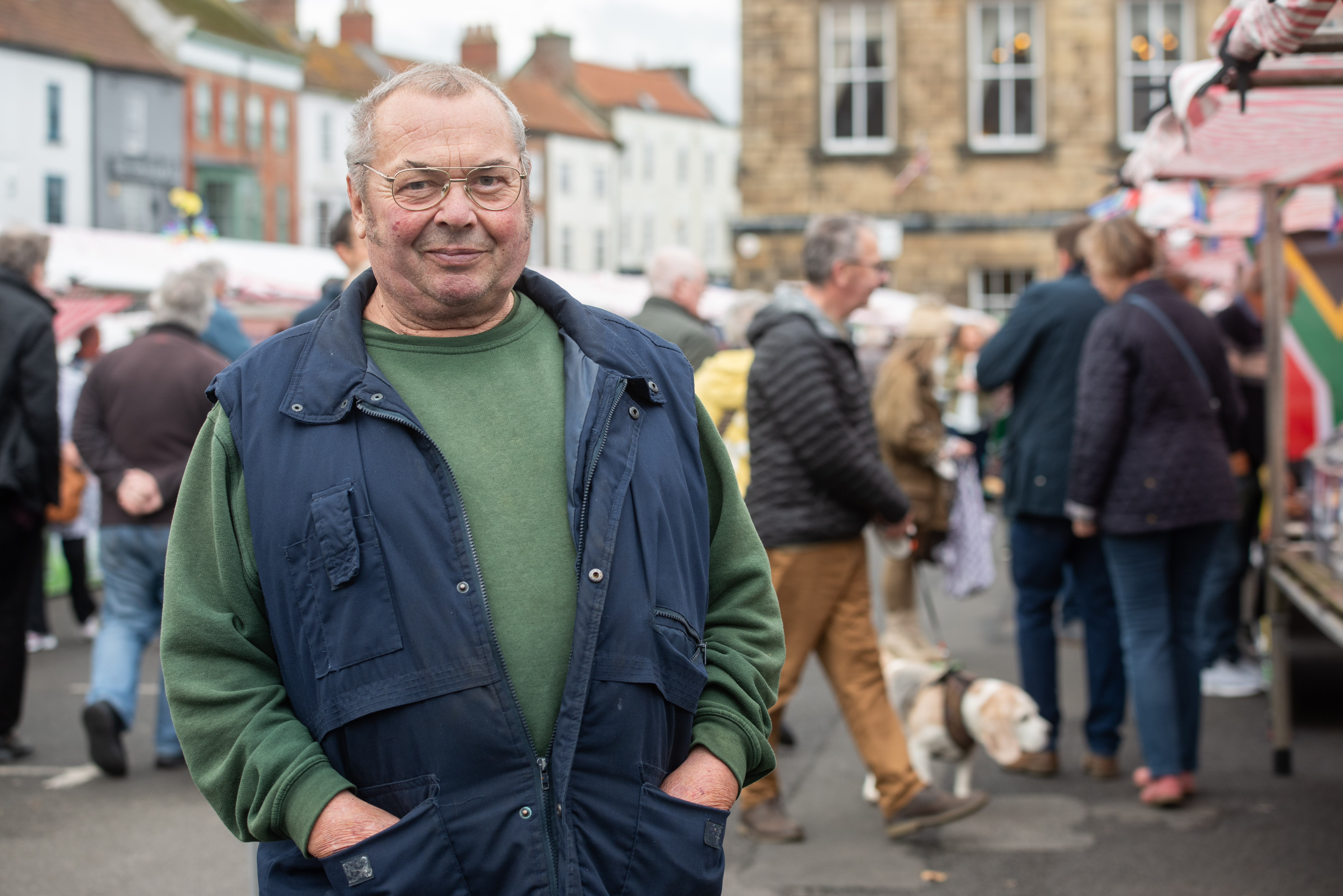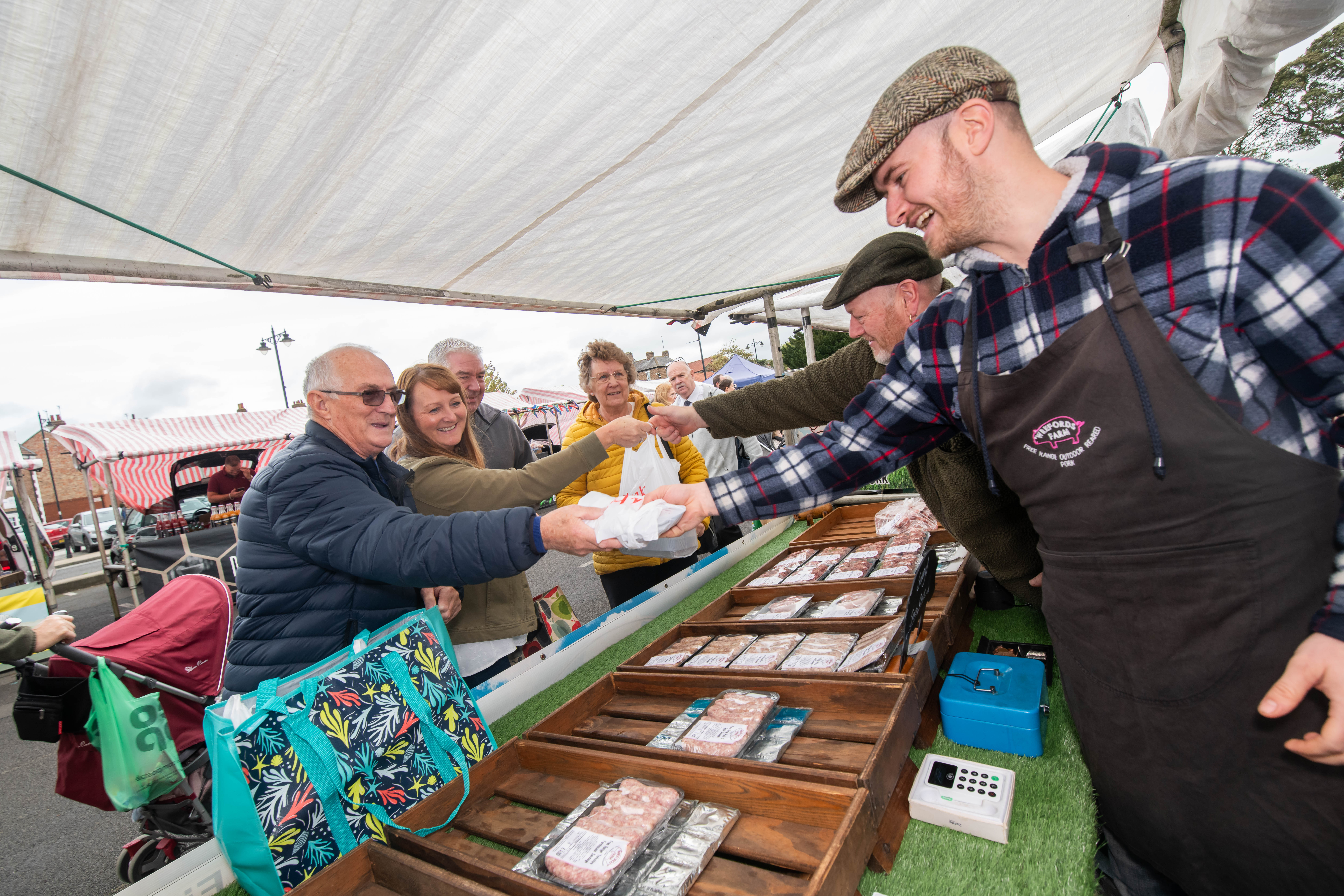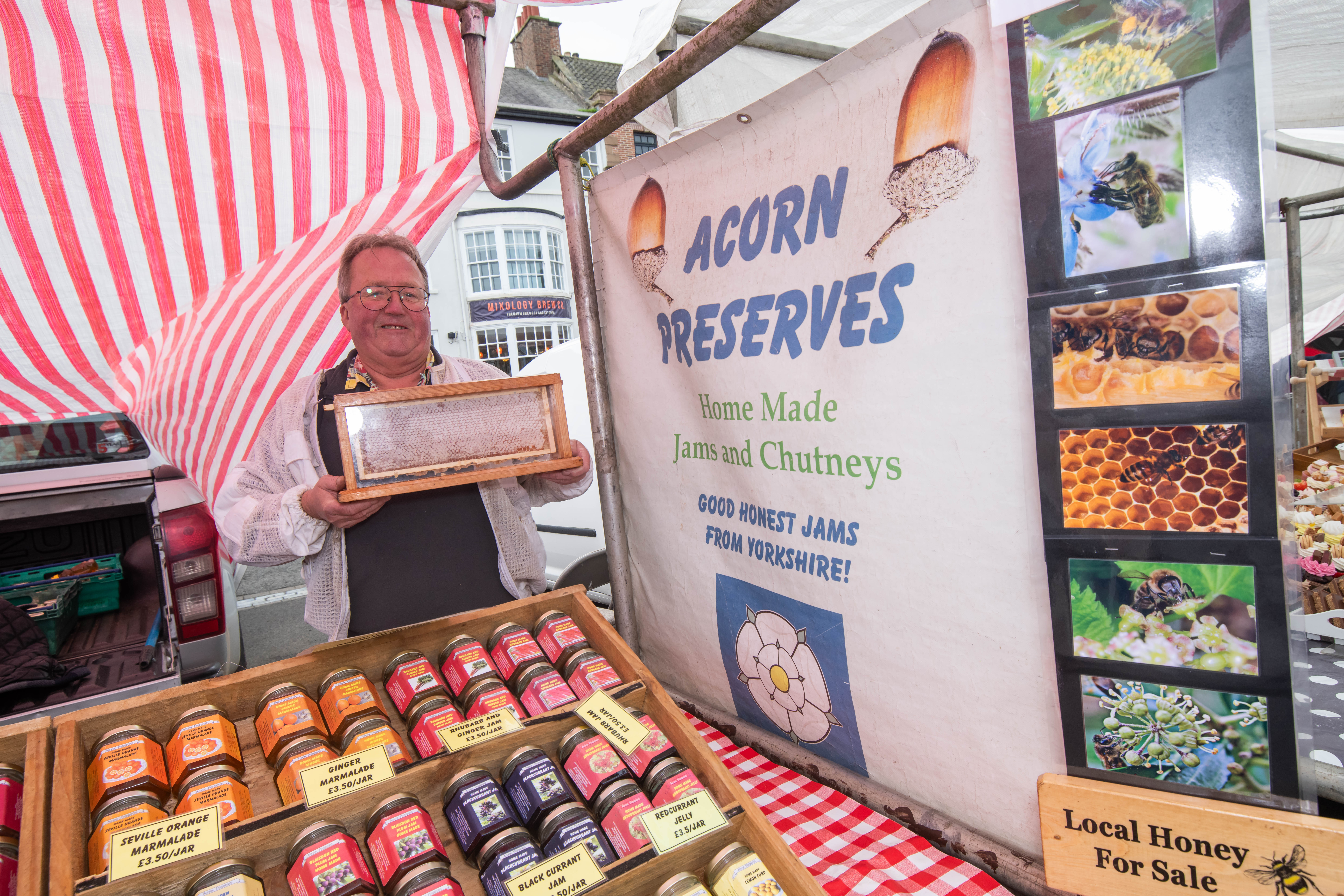Archived newsletter
This newsletter is archived. The information contained within the newsletter was correct at the time of publication.
Farmers markets have risen in prominence over the last decade, acting as a welcome addition to community life and of huge importance for tourism in North Yorkshire.
For hundreds of years, the county’s rural market towns and villages were a place where local farmers sold their fresh produce. However, from the 1950s, supermarkets came to prominence and the more traditional food markets declined in popularity.
Nevertheless, they have enjoyed a resurgence in recent years as consumers are becoming more conscious of where their food comes from and have taken an interest in alternatives to the products supermarkets offer.
Northern Dales Farmers Market operates in the north of the county, hosting monthly markets in Stokesley, Thirsk and Northallerton. They have a jam-packed schedule of weekend markets, visiting locations such as Middlesbrough and Hartlepool.
The organisation’s flagship Stokesley market, on the first and third Saturday of the month, was named Farmers Market of the Year in 2014, and has featured on The Farmers Country Showdown on BBC One.

Nigel Davidson markets manager.
Its other markets in North Yorkshire are Thirsk, on the first Sunday of the month, and Northallerton, on the second Sunday of the month.
Nigel Davidson, manager of Northern Dales Farmers Markets, said: “All stallholders are local, independent businesses which grow, rear and produce the food, drink or crafts they sell.
“Consumers value meeting the people behind the business, and it’s an opportunity to bring new products to the market place.
“Visiting the markets provides a different, and arguably more enjoyable experience than large supermarkets. They bring people together and boost the community spirit between locals and stallholders.”
Acorn Preserves is run by husband and wife Nigel and Penny Pringle, operating from their home in the picturesque village of Kilburn, just beneath the famous White Horse. They produce homemade jams and chutneys, as well as honey from their swarm of bees.
For the last six years, they have sold their produce with Northern Dales Farmers Markets. Nigel said: “People come from all over the place to buy our produce and Stokesley farmers markets are one of the busiest we have seen.
“These markets are successful due to the enjoyment people have when coming along. By selling local produce, they know where it’s coming from and can talk to the people who make it, asking any questions they like.
“Many people view going to farmers markets as a day out and tie them in with other things. They can be worked into a monthly routine.”
Benjamin Wreford lives on Wreford's Farm in County Durham, which is a small, family-run farm, producing free-range pork and grass-fed beef using regenerative agriculture. He started the business with his father, Nigel, who retired in October last year.

Wrefords meats at a farmers market.
All the feed given to the pigs is grown on their 100-acre farm and the Aberdeen Angus and Whitebred Shorthorn cattle are grass fed on rich herbal pastures with legumes and wildflowers.
Since 2013 they have been selling at local farmers markets, which includes crossing the county border and selling their produce in Stokesley.
Benjamin Wreford said: “Attending local farmers markets, such as Stokesley, has been an extremely important step for our farm. Trading on the markets actually saved our farm, and we wouldn't be here today without them.
“A huge thank you to all our fantastic customers who have supported us over many years and helped us to continue to trade.
“We owe thanks to the market team at Stokesley for giving us the opportunity to sell our pork and beef.”
Another organisation responsible for some of the county’s markets is Yorkshire Farmers Markets, which operates Harrogate on the second Thursday of every month on Cambridge Street. They also run Wetherby farmers market on the second Sunday of the month in the marketplace.
Among the village farmers markets are Grassington on the third Sunday of the month and Hovingham on the first Saturday of the month.

Nigel Pringle at Acorn preserves.
Malton has gone one step further with a spring and summer edition of the popular Food Lovers Festival, featuring artisan stalls, street food, talks, tastings, celebrity chefs, demonstrations and live music.
Council leader, Cllr Carl Les, said: “Farmers markets have become a regular feature for many towns and villages across the county, and many people have created a routine in visiting them.
“They have been key to revitalising town centres and improving rural economies. On market days we see increased footfall, which benefits other businesses in the locations where they operate.
“They are also important for North Yorkshire’s farmers, particularly those working on a smaller-scale. The markets have enabled many farms to remain viable through diversification to produce for a local market.
“Buying local products not only helps us to be confident that we are getting quality products with great flavour, but also reduces food miles, so supporting our ambitions to tackle climate change.”
The fact that farmers markets are thriving demonstrates that shopping habits have changed, and many people go out of their way to shop local and buy fresh, while enjoying the experience of meeting the producers.
Whether their popularity will continue to grow in the next decade remains to be seen, but it is clear that the dedicated organisations, producers and shoppers across North Yorkshire will do all they can to ensure the long-running tradition continues to appeal to future generations.